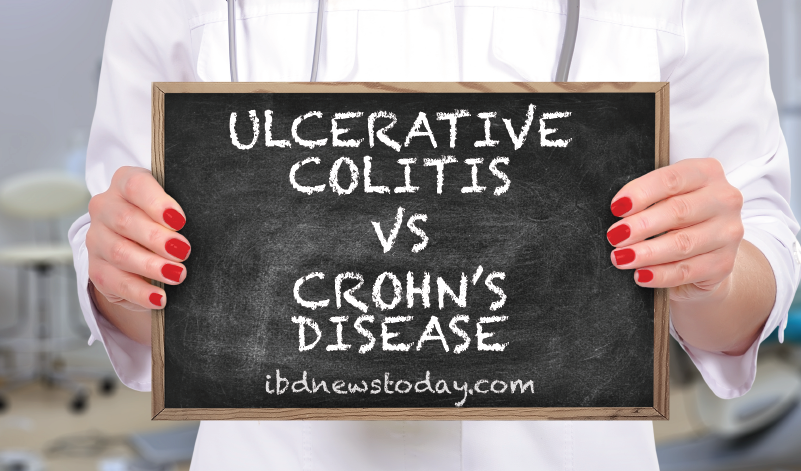Ulcerative Colitis (UC)
UC is a chronic gastrointestinal disorder that involves the rectum and the colon (the large bowel), mainly in the mucosa and submucosa regions of the gut. Unlike CD, this condition is a continuous manifestation restricted to the rectum and the colon, with ulcerations along the mucosa and submucosa. It starts with mild symptoms that gradually progress to severe ones, with periods of remission in between. The most common manifestation of UC is the progressive loosening of stools with blood, accompanied by abdominal pain and occasional fever. Loss of appetite, fatigue and weight loss are common consequences. However, unlike CD, the periods of remission in patients with UC are longer. Patients with UC are at an increased risk of colon cancer.
Crohn’s Disease (CD)
CD is referred to as the chronic inflammation of any part of the gastrointestinal (GI) tract, though it most commonly pertains to inflammation of the small bowel, sometimes extending to the top layers of the large bowel. It is a transmural condition, involving all layers of the gastrointestinal wall (mucosa, submucosa, muscularis externa and serosa), and is normally discontinuous in pattern, with patches of healthy bowel lying in between patches of damaged and inflamed bowel. Common symptoms include persistent diarrhea with occasional rectal bleeding, irregular and frequent bowel movements, weight loss, malaise, and fatigue. The most common complication specific to CD is blockage of the intestine due to excess inflammation and swelling, leading to abdominal cramps, bloating, and vomiting. Ulceration and fistulas are common in CD, and the ulcers are at a high risk of getting infected.
Both CD and UC can become very severe and may require surgery, but it has been observed that patients with CD are at a greater risk of requiring surgical intervention as a result of complications than those with UC.

